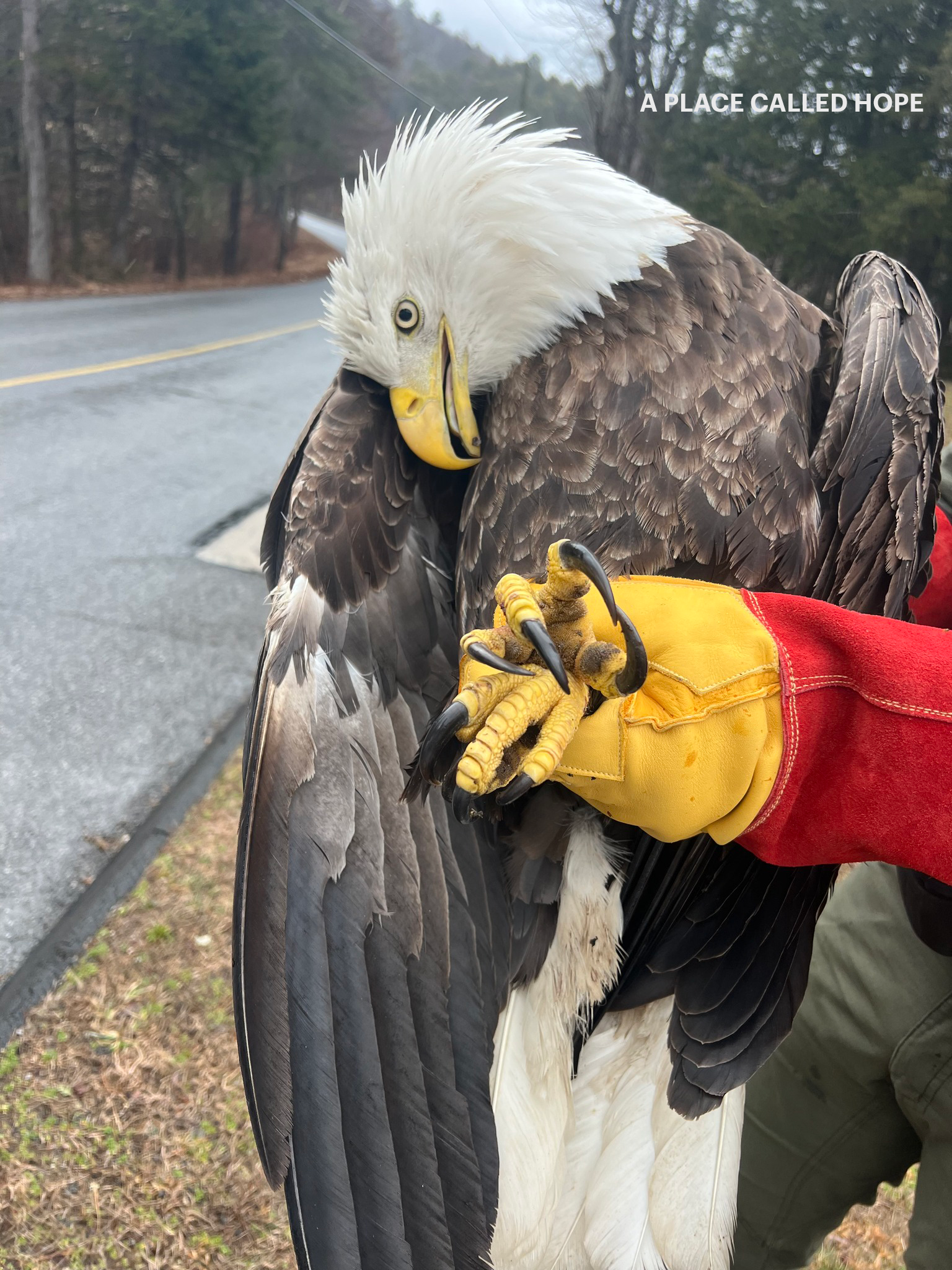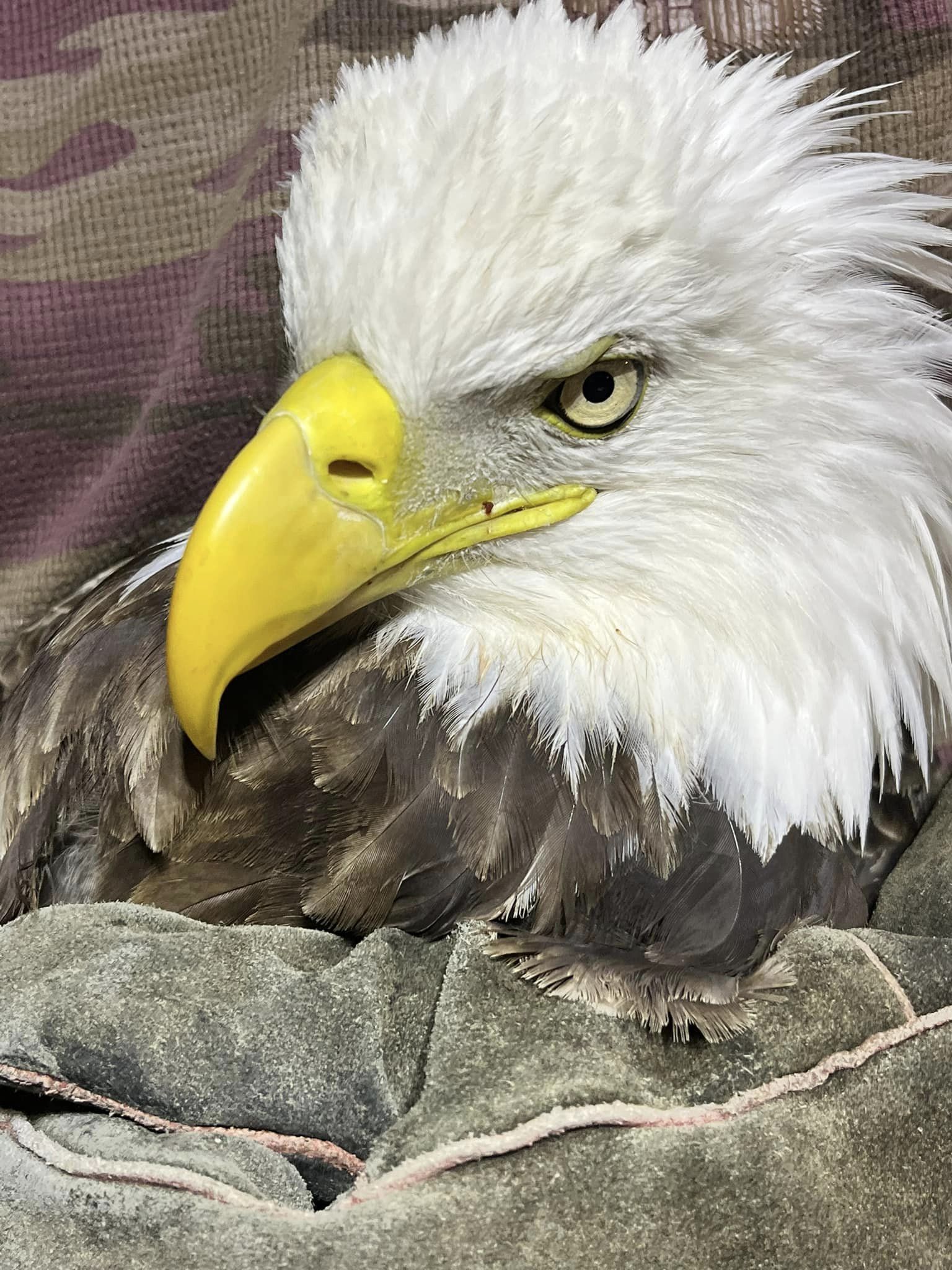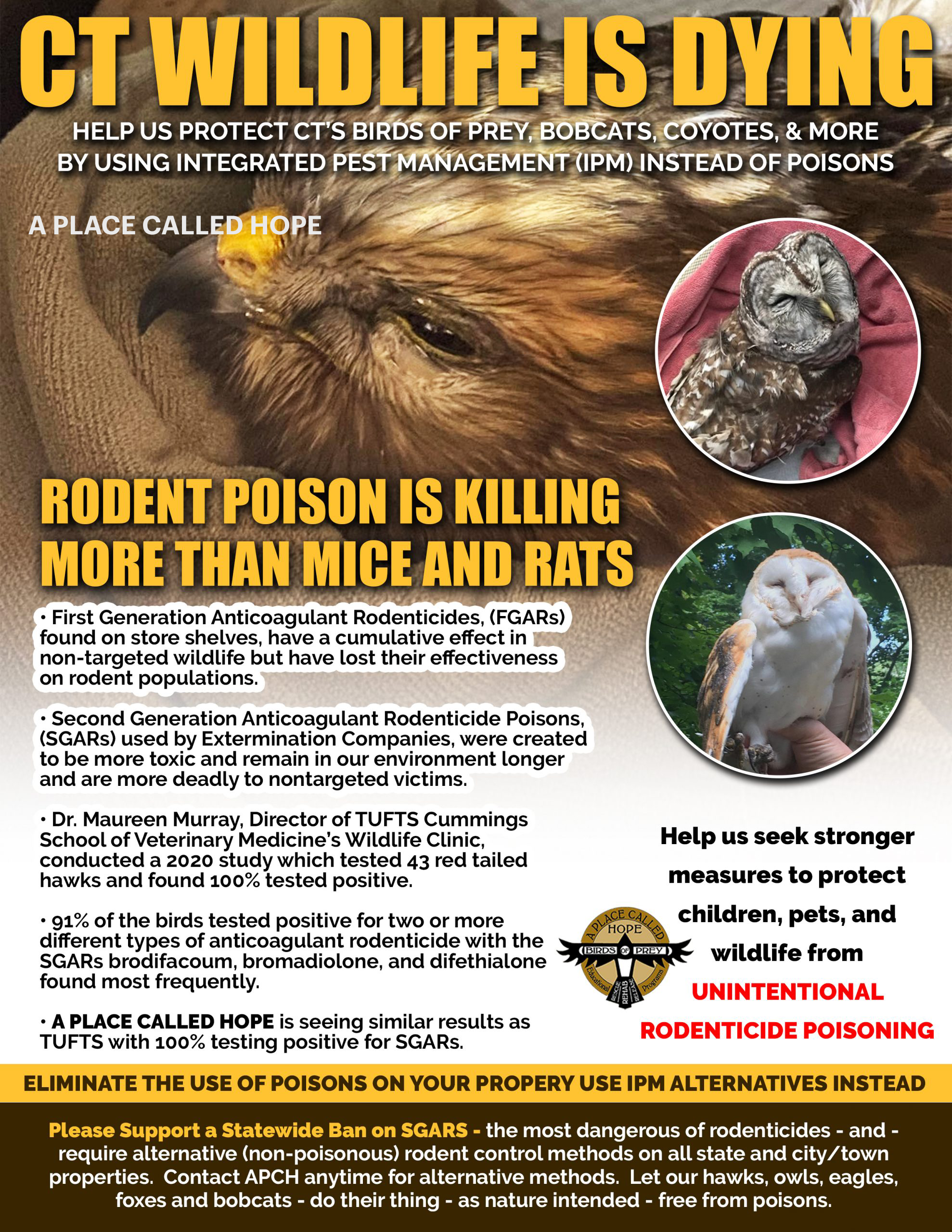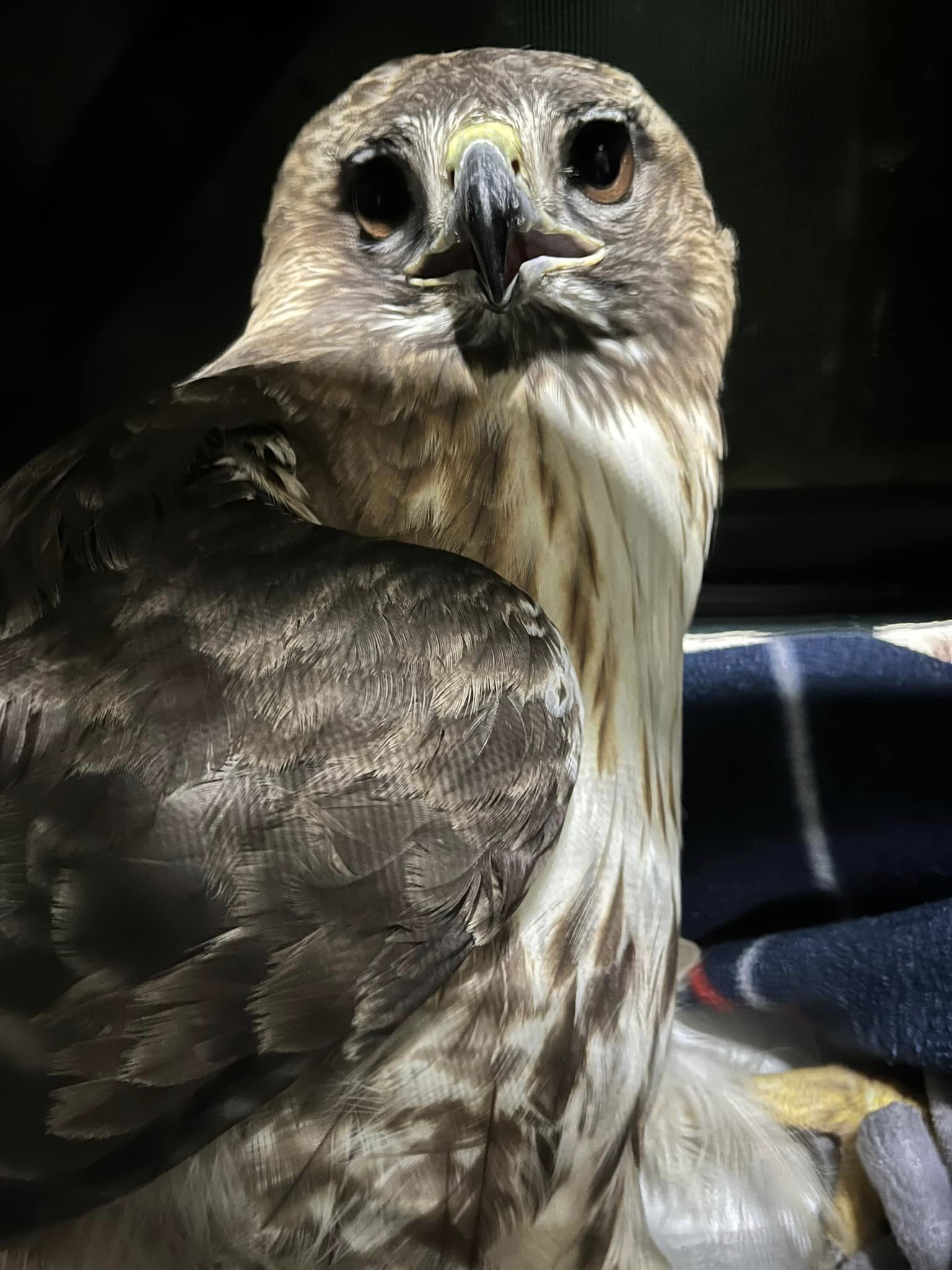More Stories

State environmental conservation police in New Hartford rescued an injured bald eagle who died Monday, believed to have been poisoned by eating an animal that ingested rodenticides, officials say. A red-tailed hawk also entered into the facility shortly after the eagle was brought in for similar reasons.

Police say the bald eagle was located in a tree and that officers were able to safely remove it. The bald eagle was sent to A Place Called Hope wildlife sanctuary in Killingworth.
A Place Called Hope director Christine Cummings says it's an all too familiar scenario that has played out in Connecticut for years.
 The bald eagle was sent to A Place Called Hope wildlife sanctuary in Killingworth. (Credit: A Place Called Hope)
The bald eagle was sent to A Place Called Hope wildlife sanctuary in Killingworth. (Credit: A Place Called Hope)
Cummings says she and other animal advocates have tried to spearhead the tightening of regulation surrounding the use of rodenticides in the state, but with no luck.
Cummings wrote in a Facebook post that the bald eagle "ate poisoned prey and may have also shared it with his family," and later shared that the eagle died.

Cummings said she was also concerned about the hawk.
"The hawk is bleeding internally and is in real trouble," Cummings wrote in a Facebook post.
Cummings says the real concern is the use of use of second-generation anticoagulants as rodent control.

She says the poison stops the animal's body from creating vitamin K, which in return causes the blood not to coagulate. She says the second generation of poisons is more potent than first-generation anticoagulants and that by the time birds ingest the tainted rodent, it's often too late and their symptoms are masked.
"Thirty-six of the 43 birds brought to us that were poisoned were tested following their deaths, and it was revealed they had ingested one or more of the ingredients connected to second-generation anticoagulants," says Cummings.
Cummings and the rehab are asking for legislative change in banning the use of rodenticides in Connecticut. Click here for more information.
More from News 12
2:00

“Tired of it.” Fresh snowfall slows Bridgeport’s efforts to clear nearly 2 feet from the blizzard
1:54

Snow piles push Stratford to the limit as crews and residents dig out
0:19

Measles detected in wastewater samples from sewershed serving Stamford and Darien

Poll: 7 in 10 Americans saw higher utility bills from cold weather
1:24

Late winter is the BEST time for a nature walk. Here's why
0:45
